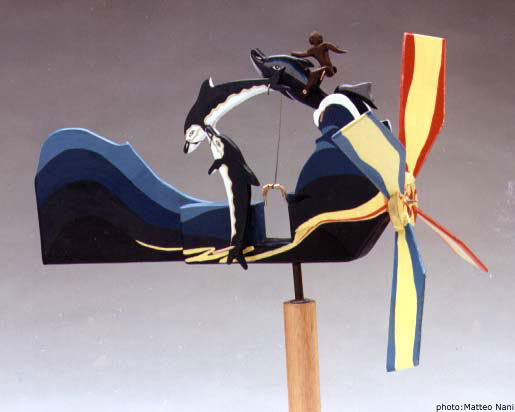Who was Arion?
They relate that Arion of Methymna, who as a player on the harp,
was second to no man living at that time, and who was, so far as we
know, the first to invent the dithyrambic measure, to give it its
name, and to recite in it at Corinth, was carried to Taenarum on
the back of a dolphin. He had lived for many years at the court of
Periander, when a longing came upon him to sail across to Italy and
Sicily. Having made rich profits in those parts, he wanted to
recross the seas to Corinth. He therefore hired a vessel, the crew
of which were Corinthians, thinking that there was no people in
whom he could more safely confide; and, going on board, he set sail
from Tarentum. The sailors, however, when they reached the open
sea, formed a plot to throw him overboard and seize upon his
riches. Discovering their design, he fell on his knees, beseeching
them to spare his life, and making them welcome to his money. But
they refused; and required him either to kill himself outright, if
he wished for a grave on the dry land, or without loss of time to
leap overboard into the sea. In this strait Arion begged them,
since such was their pleasure, to allow him to mount upon the
quarter-deck, dressed in his full costume, and there to play and
sing, and promising that, as soon as his song was ended, he would
destroy himself. Delighted at the prospect of hearing the very best
harper in the world, they consented, and withdrew from the stern to
the middle of the vessel: while Arion dressed himself in the full
costume of his calling, took his harp, and standing on the
quarter-deck, chanted the Orthian. His strain ended, he flung
himself, fully attired as he was, headlong into the sea. The
Corinthians then sailed on to Corinth. As for Arion, a dolphin,
they say, took him upon his back and carried him to Taenarum, where
he went ashore, and thence proceeded to Corinth in his musician’s
dress, and told all that had happened to him. Periander, however,
disbelieved the story, and put Arion in ward, to prevent his
leaving Corinth, while he watched anxiously for the
return of the mariners. On their arrival he summoned them before
him and asked them if they could give him any tiding of Arion. They
returned for answer that he was alive and in good health in Italy,
and that they had left him at Tarentum, where he was doing well.
Thereupon Arion appeared before them, just as he was when he jumped
from the vessel: the men, astonished and detected in falsehood,
could no longer deny their guilt. Such is the account which the
Corinthians and Lesbians give; and there is to this day at
Taenarum, an offering of Arion’s at the shrine, which is a small
figure in bronze, representing a man seated upon a dolphin.
Many thanks to
Jona Lendering
Amsterdam, The Netherlands
Articles on ancient history





